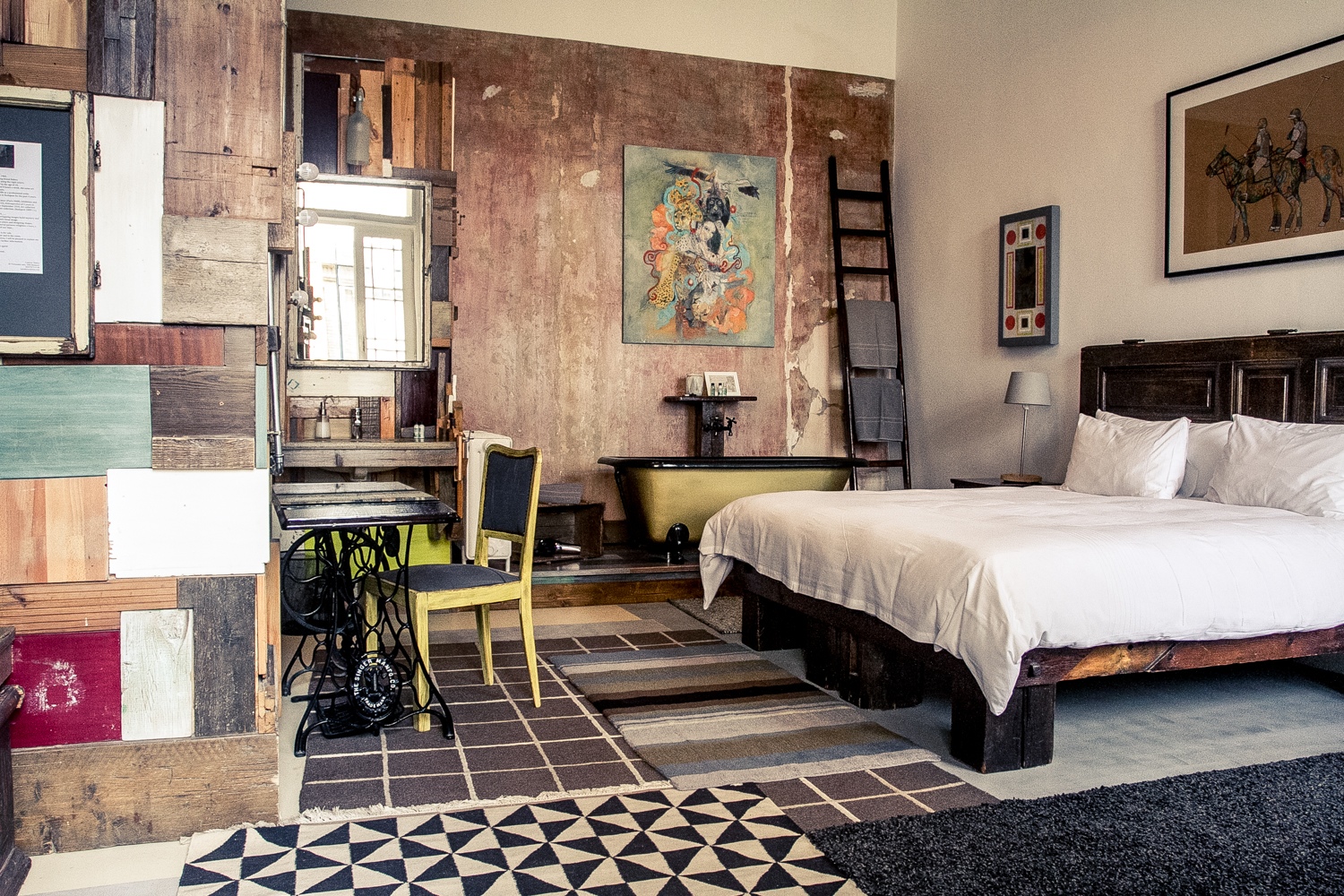Constructed in 1896 at the height of Budapest’s greatest boom period, the intricately sculpted building at 10 Bródy Sándor Street is an exemplary architectural landmark of the neighborhood’s “Palace District” heyday; at that time, Hungary’s Parliament met in the grand edifice next door (now the Italian Institute of Culture). Over the following decades, the exterior’s hand-carved floral patterns and cherubic faces sustained a lot of damage from the ravages of Hungarian history – including both World Wars, the 1956 Revolution, and a half-century of neglect under communism – but the aesthetic energy that went into creating the building remains evident to this day, outside and in.
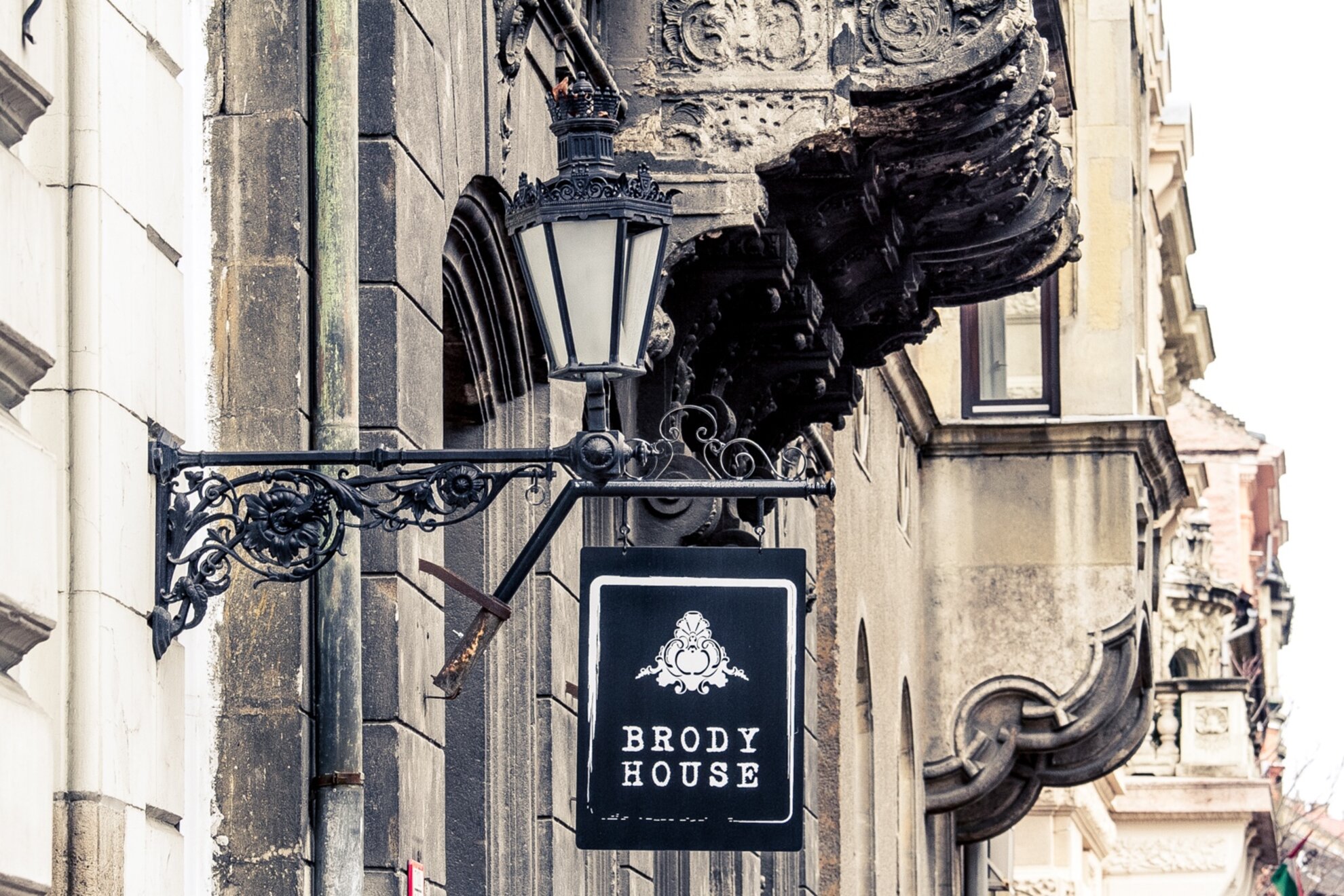
During the time leading up to 2009, Brody House founders William Clothier and Peter Grundberg lived in this historic palace along with several artists, decorating it with modern flair while hosting frequent cultural salons and elaborate dinner parties. As these events became increasingly popular with the rise of Budapest’s flourishing contemporary-art scene, William and Peter established Brody House as a dedicated boutique hotel and meeting center that could also showcase diverse paintings, photography, sculpture, and myriad other creative attractions; almost immediately afterwards, this became one of Hungary’s hottest lodging destinations.
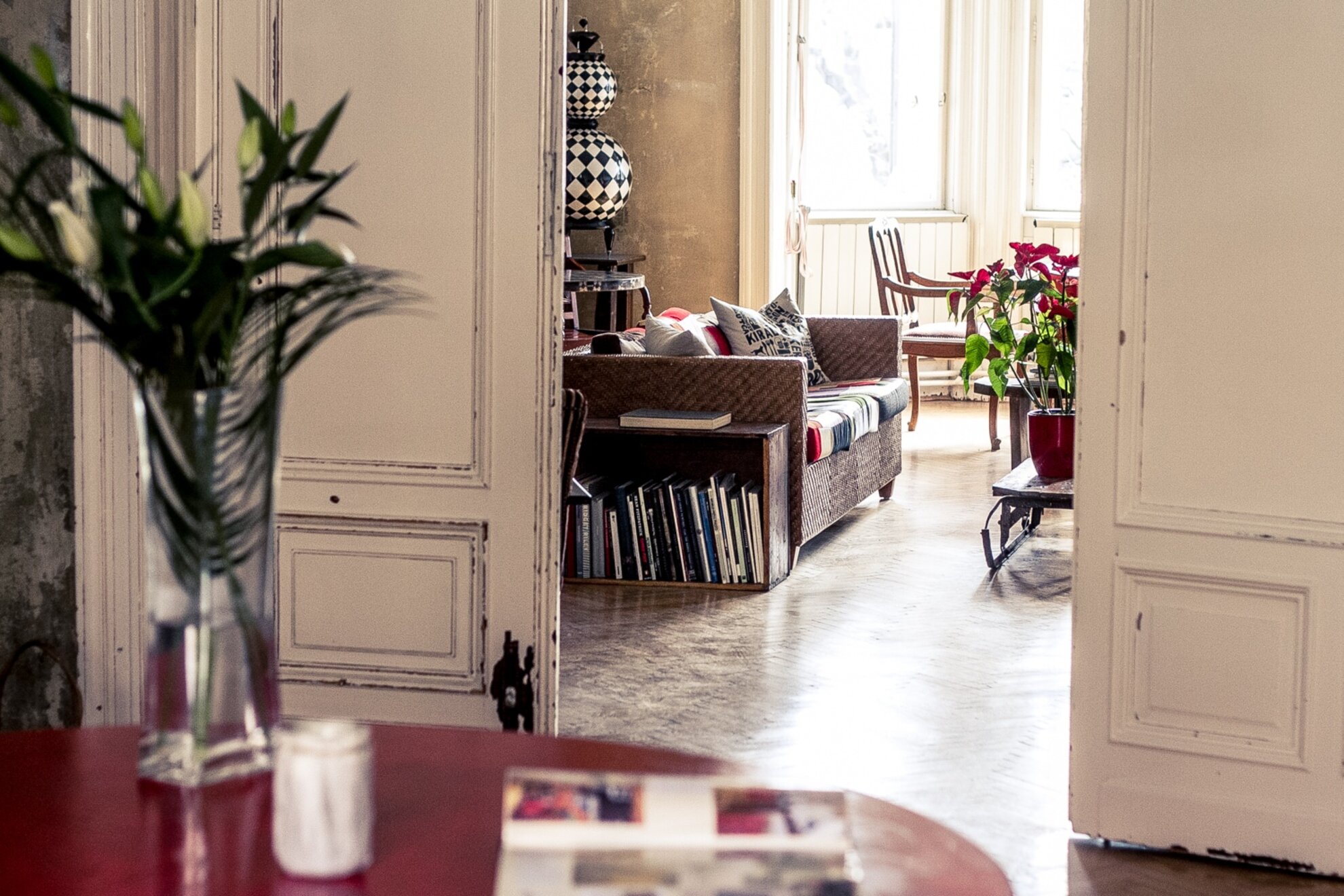
Several renovations later (the most recent one concluding last month), Brody House now offers 11 diverse rooms and apartments on multiple floors, with each chamber comprehensively designed by a different artist or curator, ensuring an absolutely iconoclastic experience for every guest – especially as a few rooms are completely remodeled every year. However, the refined aesthetics of this urban inn are not accompanied with the pretentious air that often pervades boutique hotels – the relaxed-yet-professional staff continually provides a vibrantly congenial ambience here, colorfully complemented by the rotating collection of artworks that adorns the spacious common rooms.
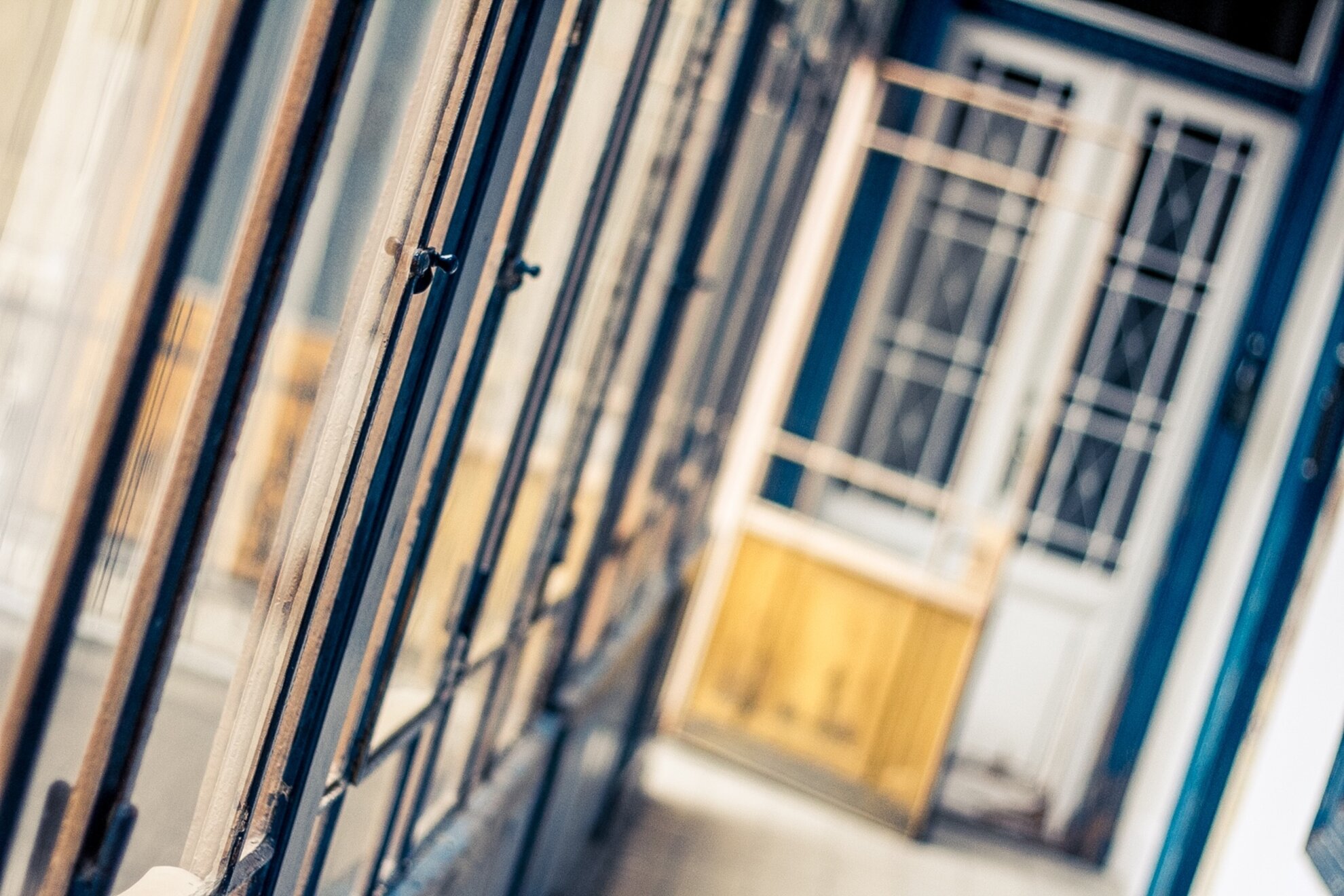
Once inside the building, the first of these art pieces that we encounter is a two-meter-tall metal-and-wood modern sculpture beside the hotel’s main entrance, at the top story of a grand staircase of wrought-iron banisters illuminated by stained-glass windows; there is no elevator here, but some Brody House rooms are located on the ground floor. The reception area already imparts a great deal of Brody House’s funky charm – the newly built front desk is made of colorful scrap wood pieced together like it was created with mixed sets of giant Lego blocks, alongside an artfully crafted grandfather clock made of cardboard.
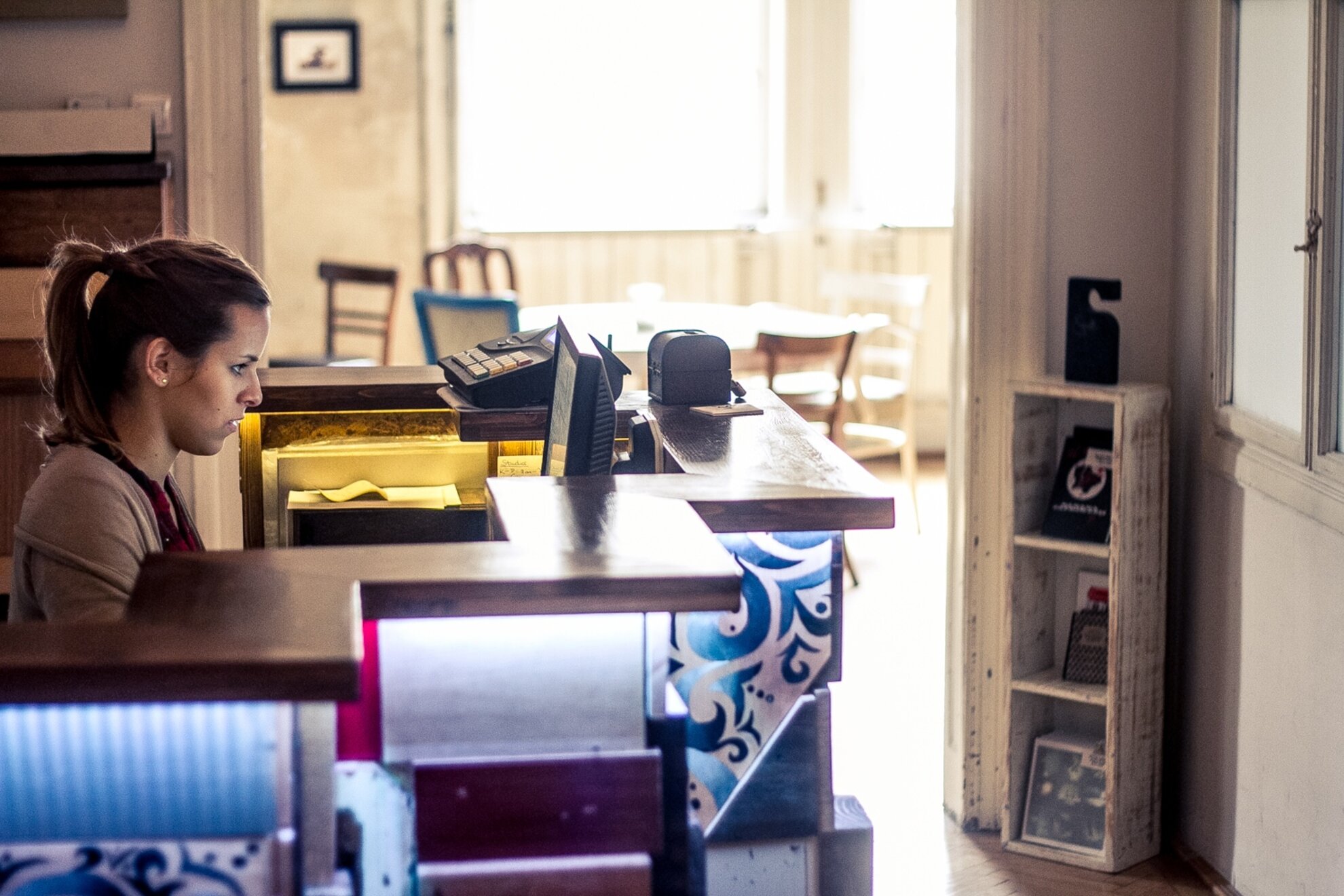
The constantly casual atmosphere is one of the most appealing aspects of staying at Brody House, and this is apparent immediately at check-in; the smiling receptionist gives us a flyer of basic information printed on unbleached paper, including the building’s entry code (“Please note it down if you don’t want to sleep on the street…”) and the Wi-Fi password (“But try to ignore work if you can…”). The reception desk is only open between 8am and 8pm, but special arrangements are made for early or late arrivals, and guests can always call an emergency number if help is needed.
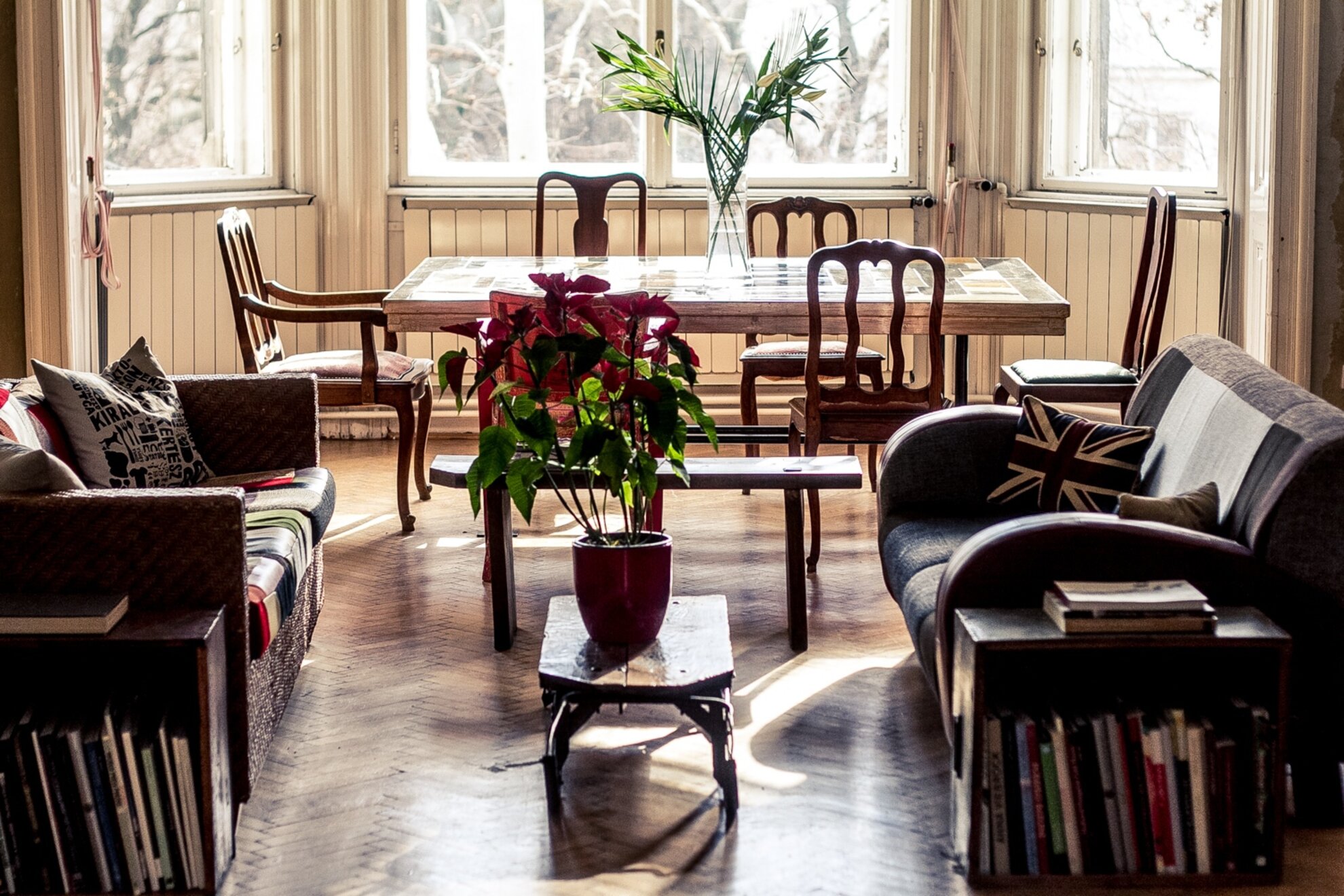
We are shown around Brody House’s common rooms, all uncommonly tasteful with their eclectic collections of contemporary paintings, silkscreen prints, statues, photography, and many other multimedia pieces by Hungarian and international artists, each of them fascinatingly hip without being obtrusive. Colorful cardboard-cutout stag’s heads adorn a wall like eco-friendly hunting trophies, mounted strips of celluloid film are carefully etched with curvaceously flowing lines, and a bulbous sculpture emblazoned with Asiatic writing contains speakers that continually play groovy beats; these are but a few artworks that pleasantly overwhelm the senses.
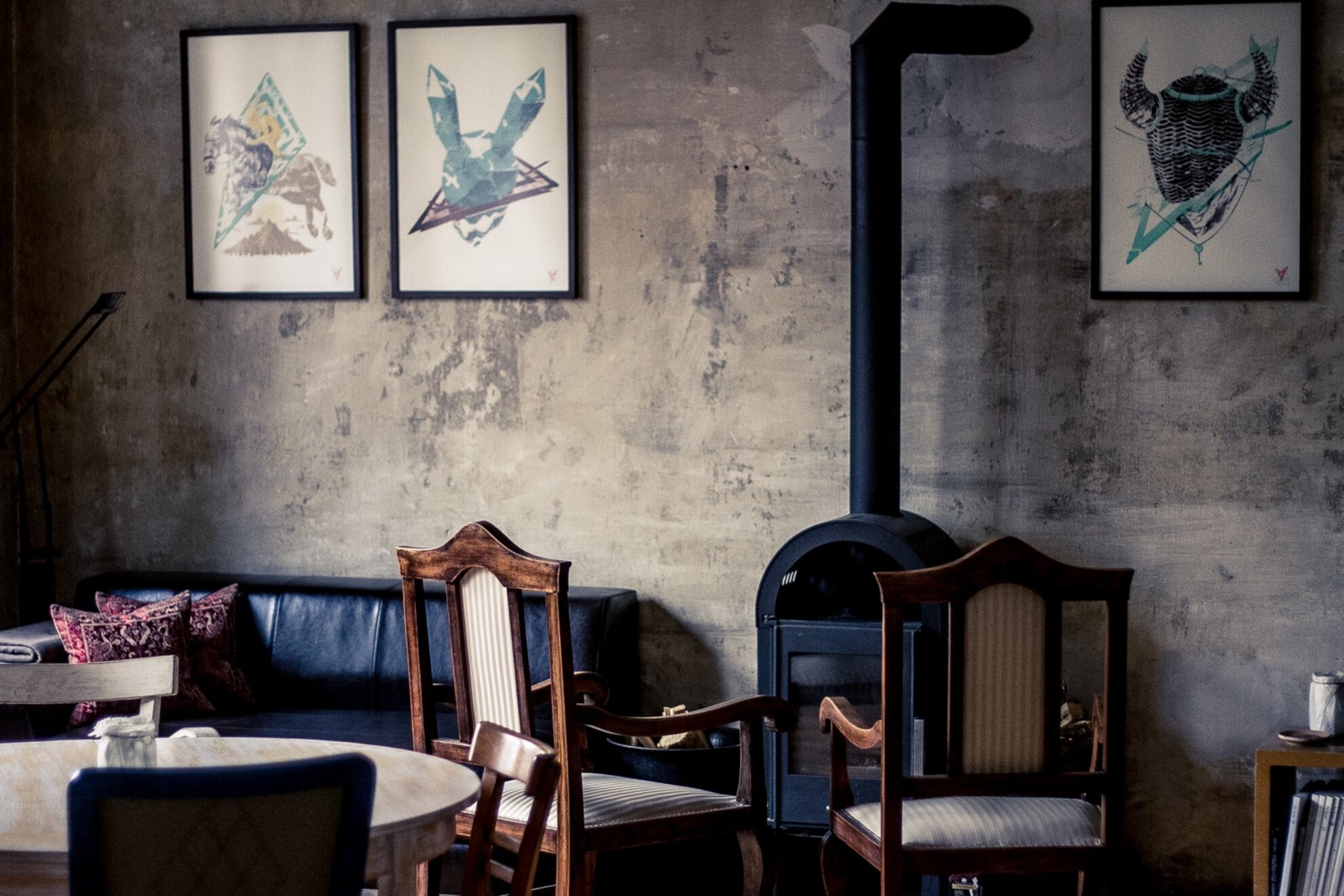
Seamlessly blended amid the gallery-quality art, numerous lounge areas and tables are surrounded by mismatched vintage chairs, with interesting books tucked about beside the colorfully upholstered couches surrounding an old sled “upcycled” into a coffee table. During daytime, huge windows provide ample sunlight and treetop views over the National Museum’s sprawling open space, while on winter nights a warm glow radiates from beautifully crafted wood-burning furnaces lined with decorative tiles, creating a comfortably cultured ambience all year long.
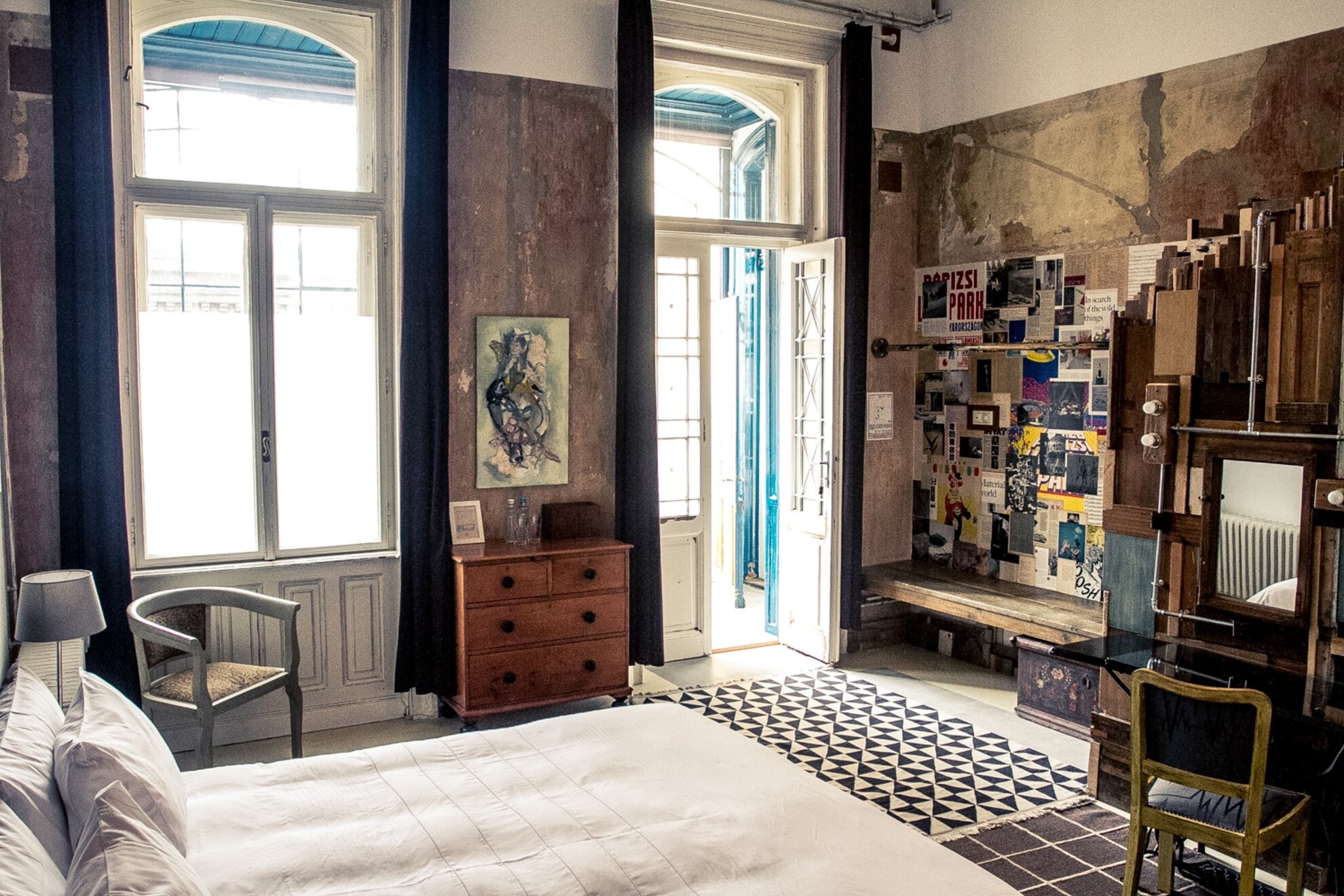
Continuing to our bedchamber for the night, we know that the artful fascination will continue – each guest room has a distinct name and personality determined by the imagination of its individual designer. We are staying in the Ludo Room, named after young Budapest-based French artist Ludovic Thiriez; his lifework focuses on the mysteries of memories and overlapping images, and this is evident in the enchanting scene he created here.
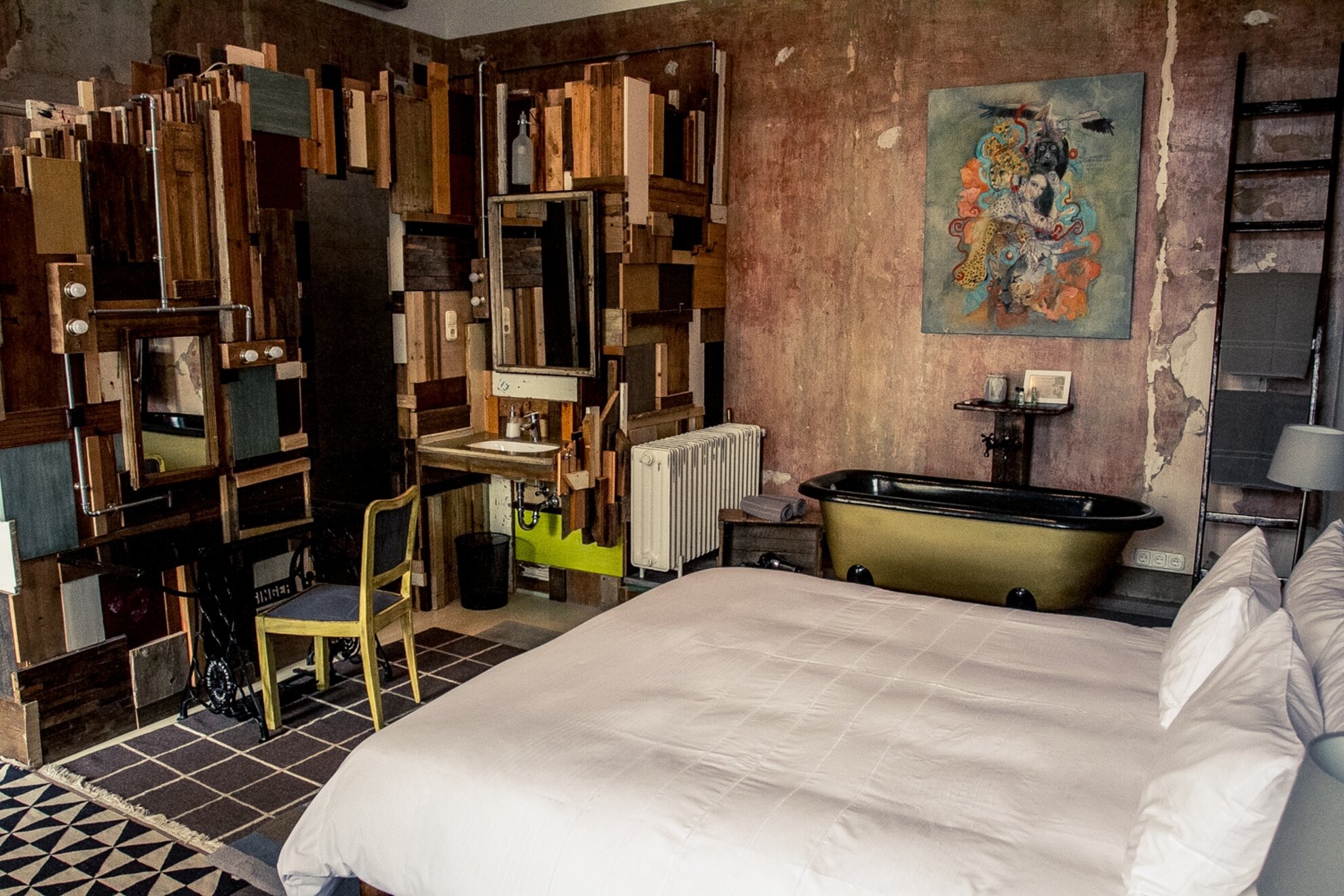
Beside a wall stripped of paint and papered as a collage of old-time circus posters, sheet music, magazine pages, handwritten letters, and other random documents, the en suite bathroom is partially shielded with a divider of painstakingly pieced-together multicolored scrap wood in a wave-like formation, embedded with pipes and window latches that serve as clothing hooks. The desk is fashioned from an old Singer sewing-machine table, while the sink is almost hidden among the hodgepodge of lumber.
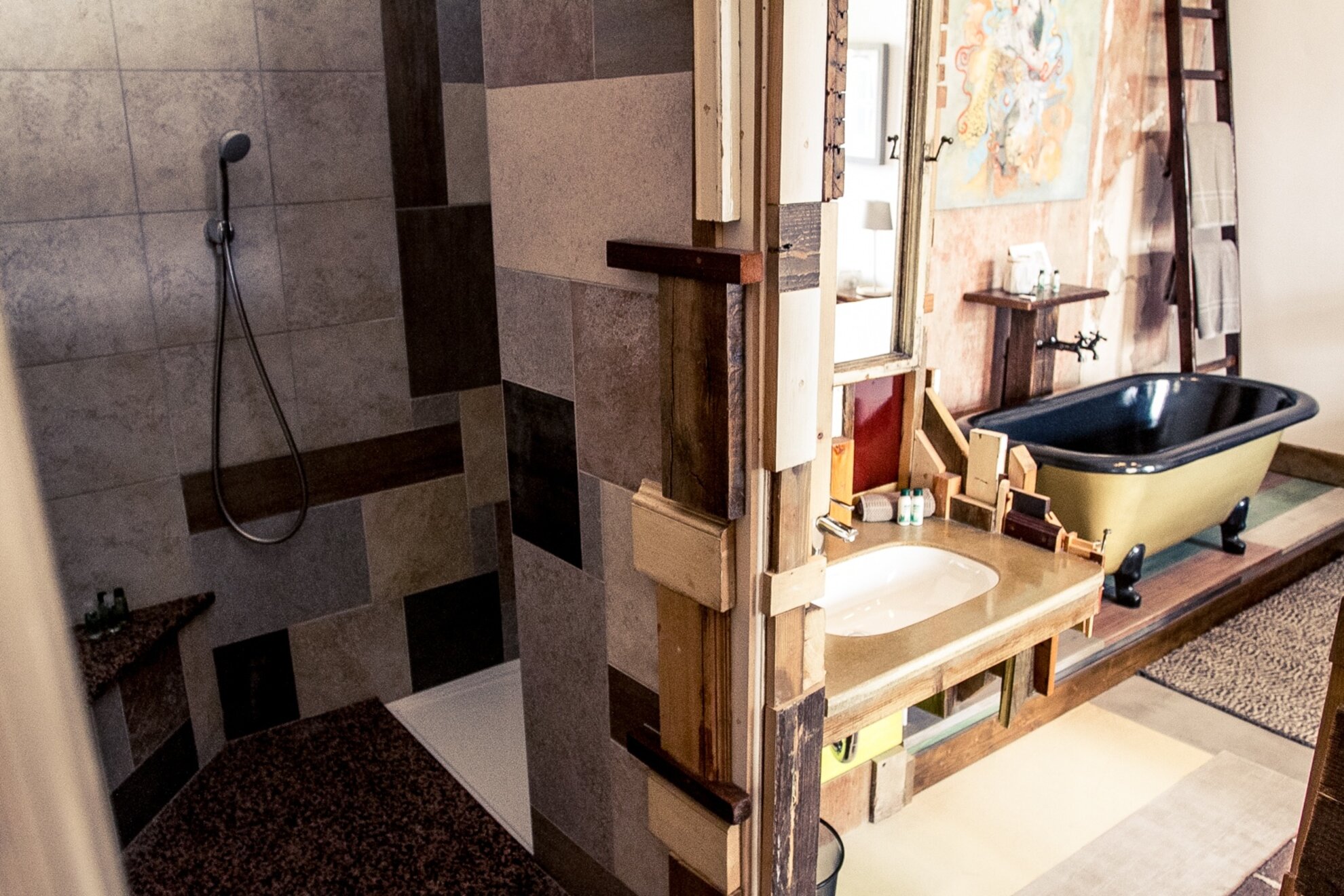
Although a powerful shower is tucked away within the bathroom area, a romantic bathtub also stands as the centerpiece of the room’s far wall (with an adjacent antique ladder for a towel rack), while the heavy wooden bedstead is crowned with a vintage door for its head, all beneath a “chandelier” of long-armed desk lamps fastened together around a circular metal hub. With so many fascinating details to rest our eyes upon, we are glad that no television will distract us tonight; most Brody House rooms are purposefully free of TVs.
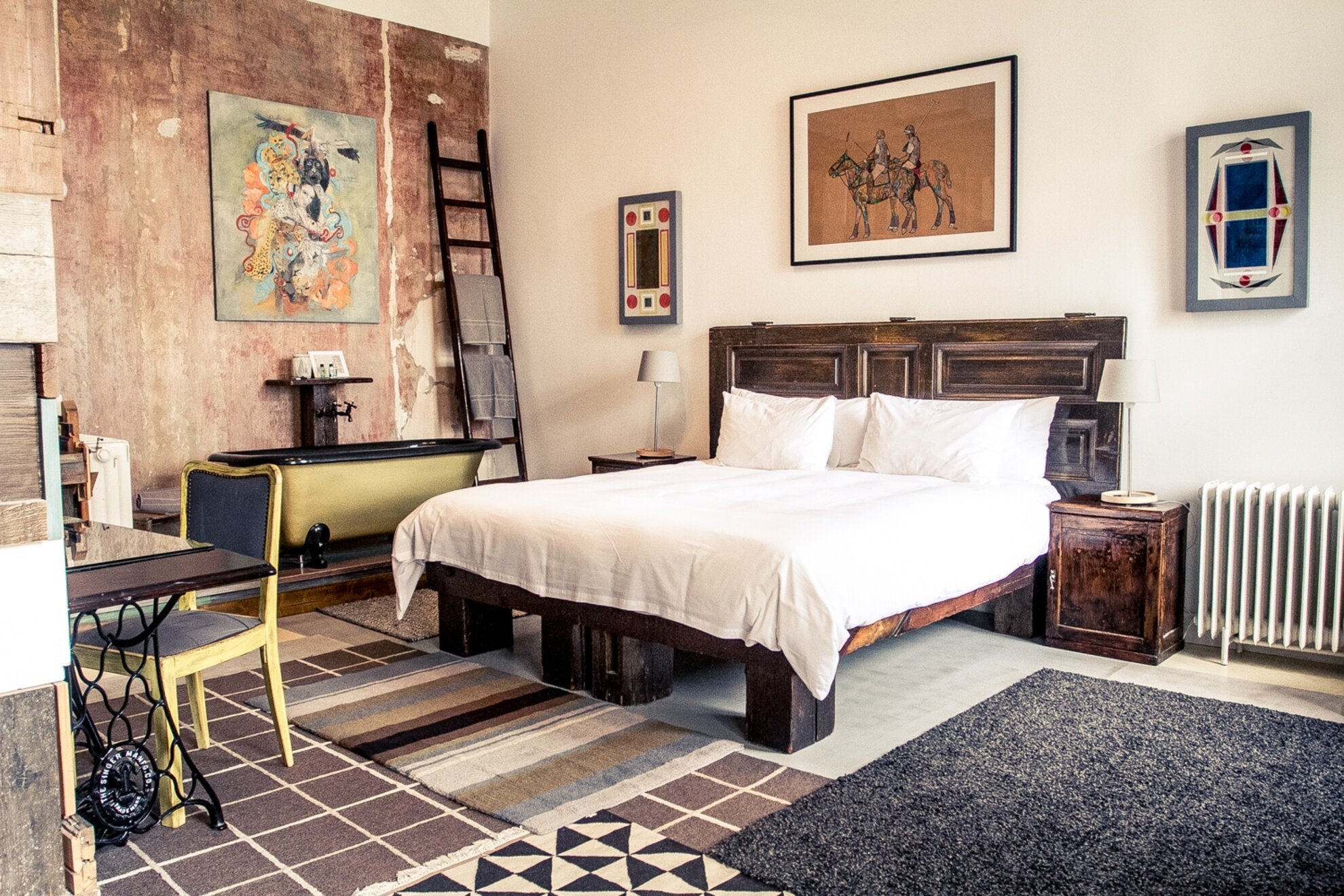
While a vintage (almost steampunk) air pervades this place, the Ludo Room and all other Brody House accommodations are equipped with modern amenities; motion sensors activate the bathroom lights and ventilator, a Vidal Sassoon hairdryer is concealed within a wooden crate, and the digitally controlled radiator keeps the room’s occupants warm, as does the comfy down duvet and oversized pillows. Brody House is proudly an eco-friendly establishment, so when leaving the room we happily comply with the reminder asking us to conserve electricity by switching off the lights – enhanced with cute artwork that congratulates us for saving a polar bear.
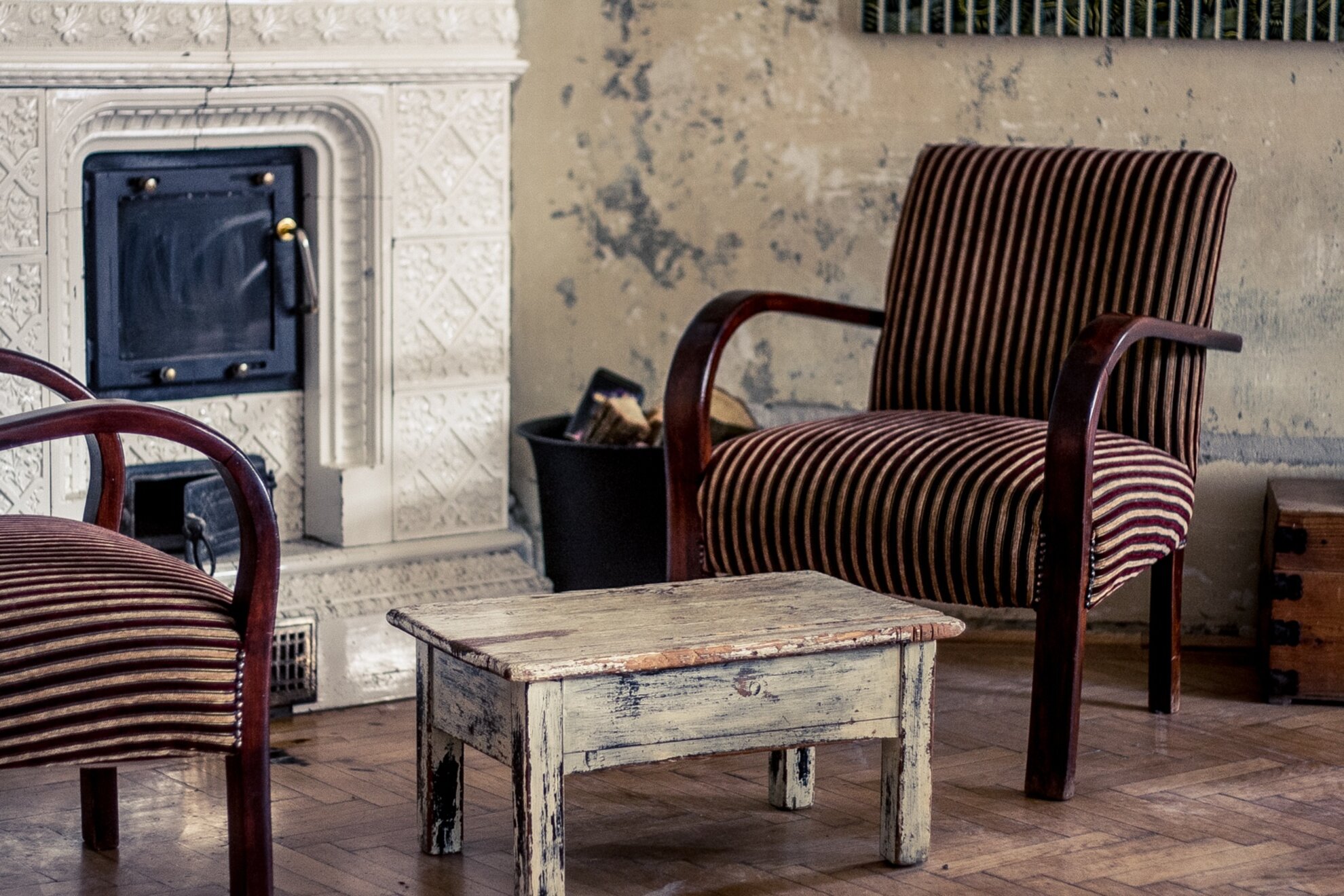
After stepping out for a bit – enjoying Brody House’s proximity to dining and nightlife hotspots like Ráday Street and the Jewish Quarter – we return to find the common rooms absolutely empty, but animated by jazzy rhythms and crackling fires. Stepping over to the unmanned “honesty bar” featuring a wide range of Hungarian and global tipples, we enjoy some (perhaps generously poured) glasses of Magyar-made Etyeki Kúria red wine created with Pinot Noir and Kékfrankos grapes grown just outside of Budapest. Cozily enveloped by the captivating artworks and warmed by the fire and fine wine, we realize that staying at Brody House feels less like visiting a hotel than like house-sitting for some particularly tasteful cosmopolitan friends.
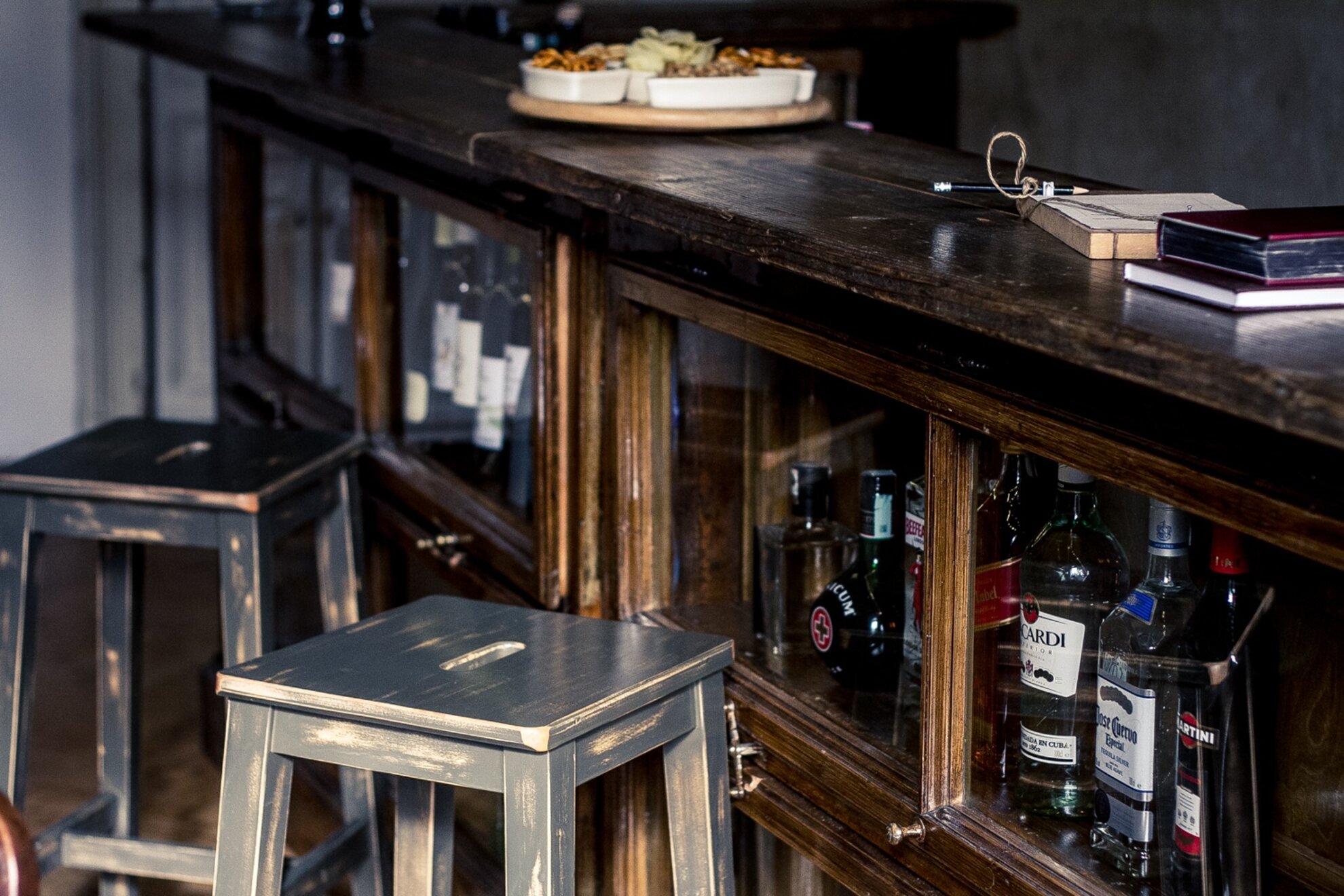
After a truly restful sleep, we awaken for breakfast served in the common rooms – the continental spread includes whole-grain croissants, tasty cheeses, dried and fresh fruits, and cereals to be devoured with milk poured from an antique glass bottle from the Aberlour Distillery; made-to-order hot dishes like eggs Benedict and pancakes are also available. Sipping coffee while admiring the surrounding artworks, we feel a serene spirit that gives a genuinely stimulating start to our day.
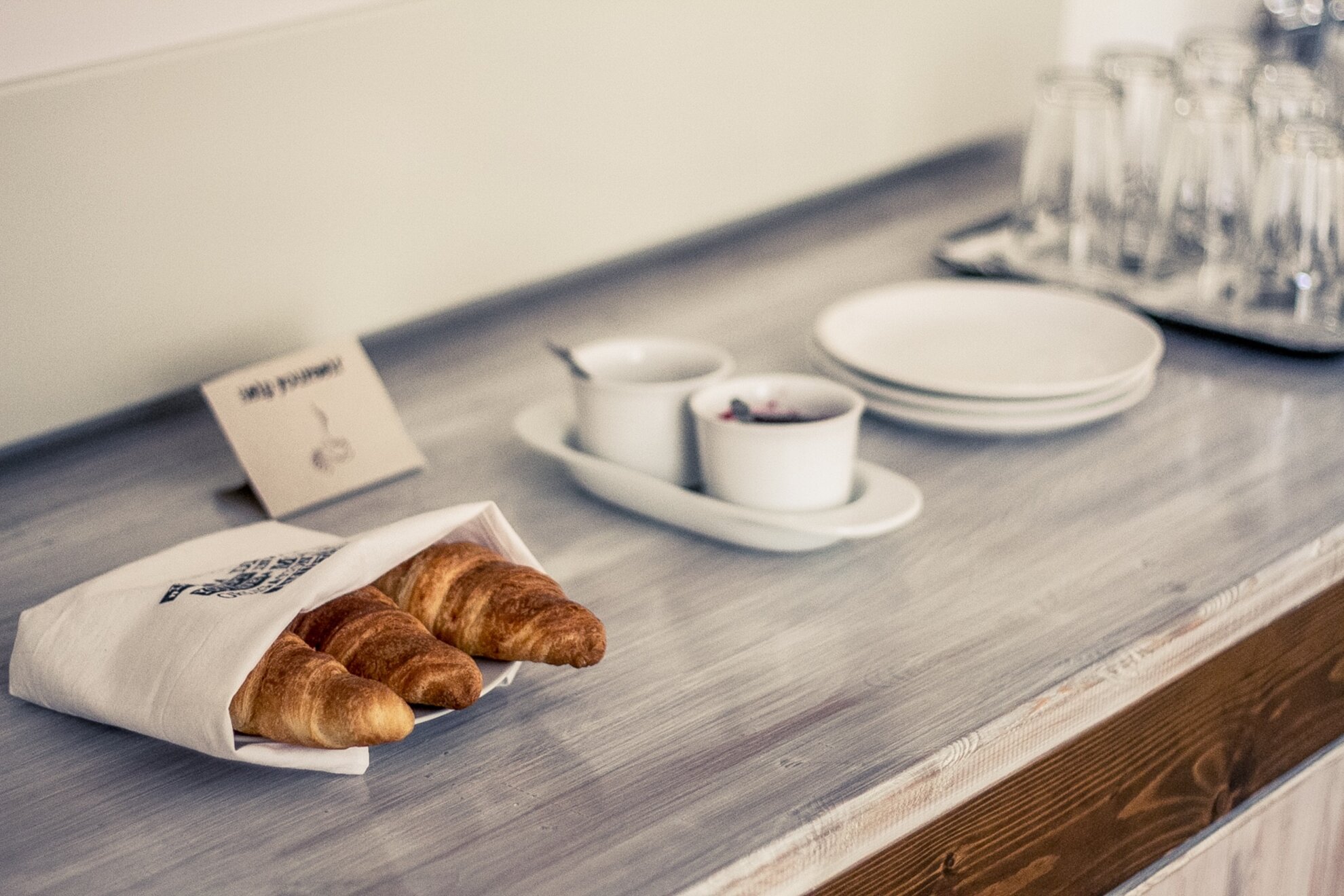
After this pleasurable morning meal, we return to the Ludo Room to pack up our stuff, pausing to take another look around at the artistic ambience before reluctantly heading to check out – after our night here, it is easy to understand why many Brody House guests consider the scenery of these accommodations as a highlight of their Budapest sightseeing.As of press time, room rates at Brody House range from approximately 70 euros per night to 120 euros per night, breakfast not included; see the hotel’s official website for current rates.
We Love Budapest’s “Guest Experience” series profiles various Budapest hotels that invite our staff to visit at no charge, but with the understanding that we may include negative impressions in our coverage; hotel management is not allowed to review these articles before they are posted.
